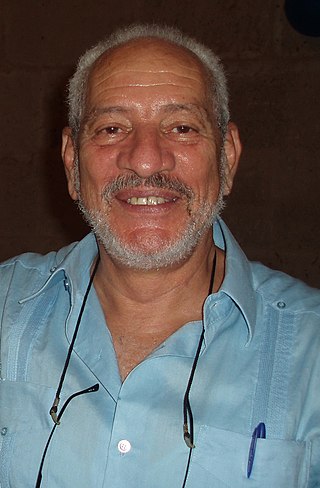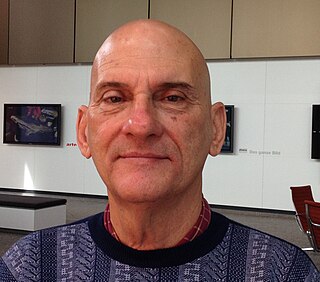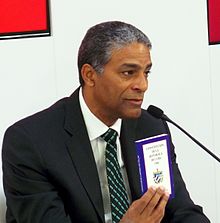Human rights in Cuba are under the scrutiny of human rights organizations, which accuse the Cuban government of committing systematic human rights abuses against the Cuban people, including arbitrary imprisonment and unfair trials. International human rights organizations such as Amnesty International and Human Rights Watch have drawn attention to the actions of the human rights movement and designated members of it as prisoners of conscience, such as Óscar Elías Biscet. In addition, the International Committee for Democracy in Cuba led by former statesmen Václav Havel of the Czech Republic, José María Aznar of Spain and Patricio Aylwin of Chile was created to support the Cuban dissident movement.
The Varela Project is a project that was started in 1998 by Oswaldo Payá of the Christian Liberation Movement (MCL) and named after Felix Varela, a Cuban religious leader.

Oswaldo Payá Sardiñas was a Cuban political activist. A Roman Catholic, he founded the Christian Liberation Movement in 1987 to oppose the one-party rule of the Cuban Communist Party. He attracted international attention for organizing a petition drive known as the Varela Project, in which 25,000 signatories petitioned the Cuban government to guarantee freedom of speech and freedom of assembly as well as to institute a multi-party democracy. In recognition of his work, he received the European Parliament's Sakharov Prize and People in Need's Homo Homini Award.

The Cuban dissident movement is a political movement in Cuba whose aim is to replace the current government with a liberal democracy. According to Human Rights Watch, the Marxist-Leninist Cuban government represses nearly all forms of political dissent.
Armando Valladares Perez is a Cuban-American poet, diplomat and former political prisoner for his involvement in the Cuban dissident movement.
Óscar Manuel Espinosa Chepe was a Cuban economist and dissident. He was one of approximately 75 dissidents arrested, tried and convicted in 2003 as part of a crackdown by the Cuban government nicknamed the "Black Spring". He was given a twenty-year sentence on a charge of "activities against the integrity and sovereignty of the State", causing Amnesty International to declare him as a prisoner of conscience.
Shi Tao is a Chinese journalist, writer and poet, who in 2005 was sentenced to 10 years in prison for releasing a document of the Chinese Communist Party (CCP) to an overseas Chinese democracy site. Yahoo! China was later discovered to have facilitated his arrest by providing his personal details to the Chinese government. Yahoo! was subsequently rebuked by a panel of the U.S. Congress, settled a lawsuit by Shi's family out of court, and pledged to reform its practices.

Ladies in White is an opposition movement in Cuba founded in 2003 by wives and other female relatives of jailed dissidents and those who have been made to disappear by the government. The women protest the imprisonments by attending Mass each Sunday wearing white dresses and then silently walking through the streets dressed in white clothing. The color white is chosen to symbolize peace.
The Lawton Foundation was founded in 1997 in Havana, Cuba, as a non-governmental organization to promote the "study, defense and denunciation of human rights inside Cuba". The group was formed by Christian anti-abortion activist Oscar Elías Biscet González and is made up of adult Cuban citizens of all ages, social groups, professionals as well as non-professionals. The group claims to have been censured, harassed, mistreated and incarcerated by the Cuban authorities. The Lawton Foundation has a branch in the United States and other branches internationally.

Vladimiro Roca Antúnez was a Cuban dissident and leader of the Cuban Social-Democratic Party. A member of the "Group of Four", he was imprisoned from 1997 to 2002 after co-authoring a paper calling for democratic reforms.

Marta Beatriz Roque Cabello is a Cuban political dissident. She is an economist by training and the founder and director of the Cuban Institute of Independent Economists. Agence France-Presse described her in 2007 as Cuba's "leading woman dissident".
Jorge Luis García Pérez is an Afro-Cuban human rights and democracy activist.

Black Spring was the 2003 crackdown by the Cuban Government on Cuban dissidents. The government imprisoned 75 dissidents, including 29 journalists on the basis that they were acting as agents of the United States by accepting funds from the US government and George W. Bush's administration at the time. Amnesty International described the 75 Cubans as "prisoners of conscience". The Cuban government stated at the time: "the 75 individuals arrested, tried and sentenced in March/April 2003... are demonstrably not independent thinkers, writers or human rights activists, but persons directly in the pay of the US government. [...] [T]hose who were arrested and tried were charged not with criticizing the [Cuban] government, but for receiving American government funds and collaborating with U.S. diplomats".
Angel Moya Acosta is a Cuban construction worker and the founder of the Alternative Option Movement.

Darsi Ferrer Ramírez was a Cuban doctor, journalist, director of Juan Bruno Zayas Health and Human Rights Center, and also a dissident.
Yndamiro Restano Díaz is a Cuban dissident journalist and poet who has won the 1996 Golden Pen of Freedom Award of the World Association of Newspapers and a 1994 International Press Freedom Award from the Committee to Protect Journalists. In 1995, the South Florida Sun-Sentinel described him as "Cuba's leading dissident journalist".

René de Jesús Gómez Manzano is a Cuban dissident known for his essay "The Homeland Belongs to All", which he co-wrote with Marta Beatriz Roque, Vladimiro Roca, and Felix Bonne, as well as his repeated imprisonment by the Cuban government. Amnesty International has named him to be a prisoner of conscience three times.
Antonio Enrique González-Rodiles Fernández is a Cuban political activist who has achieved international visibility for his work as the coordinator of Estado de SATS, a forum which was created in July 2010 to encourage debate on social, cultural and political issues in Cuba. Rodiles is also coordinator of the Forum for the Rights and Freedom.

Normando Hernández González is a Cuban writer and journalist who now lives in the United States.

Freedom Collection is a digital repository sponsored by the George W. Bush Institute at the George W. Bush Presidential Center on Southern Methodist University's campus in Dallas, Texas. The collection documents major players in human rights and freedom movements around the world during the 20th and 21st centuries through video interviews and documents. Contributors include former president of Liberia Ellen Johnson Sirleaf, Syrian dissident and author Ammar Abdulhamid, former president of Czechoslovakia and the Czech Republic Václav Havel, Chinese civil rights activist Chen Guangcheng, former president of Peru Alejandro Toledo, and Egyptian author Saad Eddin Ibrahim. At its launch on March 28, 2012, the collection consisted of 56 interviews. As of 2022, the Freedom Collection website was last updated in 2016 and its YouTube channel, where video interviews are available to watch, was last updated in October 2015. It is unclear if the project is still active.










